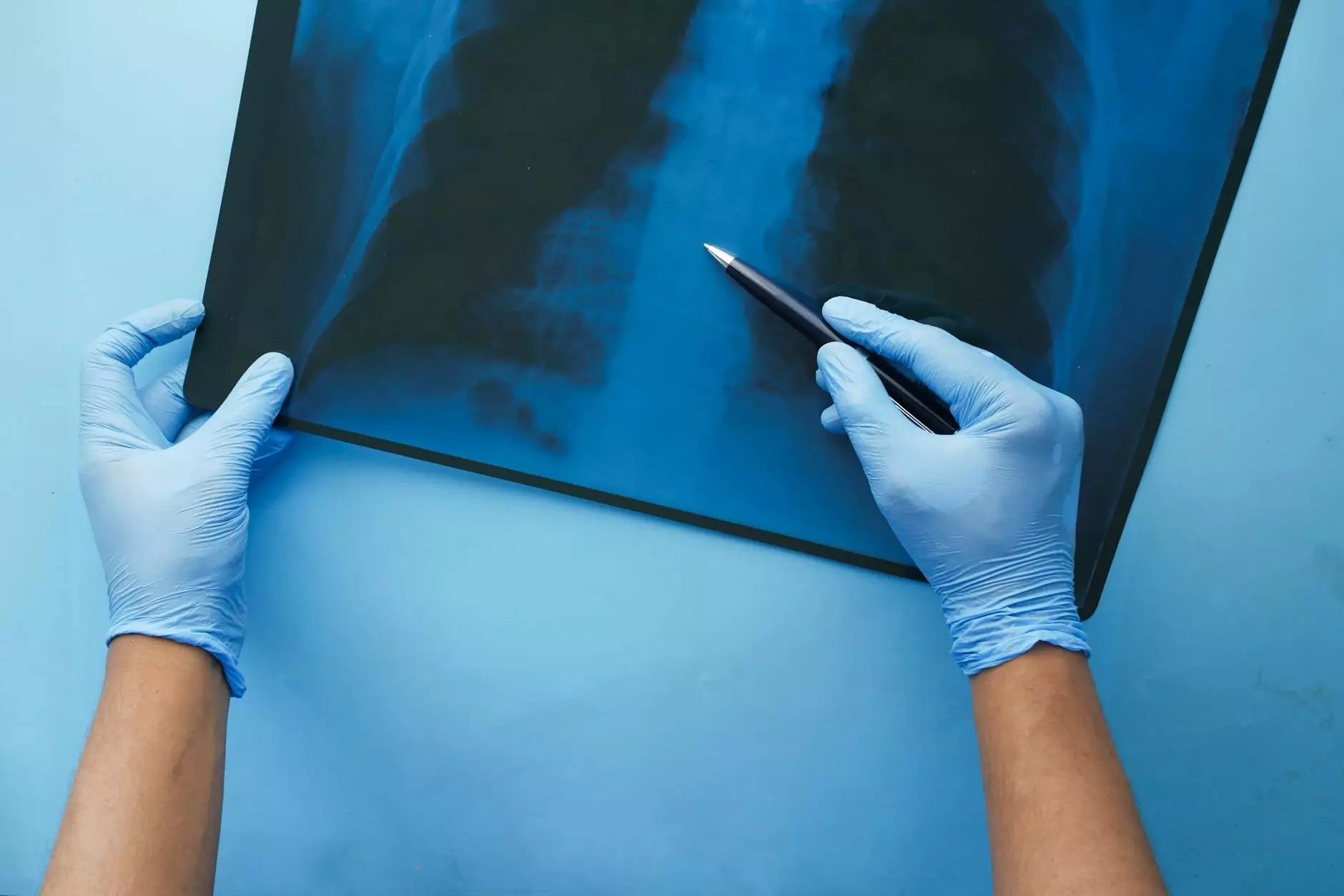A Comprehensive Guide to the Role of a Thorax Doctor

The field of medicine is vast and includes numerous specialties aimed at diagnosing and treating various health conditions. One such critical specialty is that of a thorax doctor, also known as a thoracic surgeon or pulmonologist. In this article, we will delve deep into the essential aspects surrounding the role of a thorax doctor, their importance in healthcare, the conditions they treat, and how they make a significant impact on patient health and recovery.
What is a Thorax Doctor?
A thorax doctor is a medical professional who specializes in diseases and conditions affecting the thoracic cavity, which includes the lungs, heart, and surrounding structures. This specialty can encompass various areas of medicine and surgery, focusing primarily on diagnosing and treating diseases related to:
- The Lungs: Conditions like asthma, chronic obstructive pulmonary disease (COPD), lung cancer, and pneumonia.
- The Heart: Some thoracic surgeons may also address heart issues, although this overlaps significantly with the work of cardiologists.
- Esophagus: Disorders like acid reflux or esophageal cancer.
- Chest Wall: Conditions such as thoracic outlet syndrome and chest trauma.
Types of Thorax Doctors
In the realm of thoracic medicine, there are primarily two types of physicians you may encounter:
Pulmonologists
Pulmonologists are specialists in the respiratory system. They diagnose and treat lung-related diseases, which may include:
- Asthma
- Chronic Bronchitis
- Interstitial Lung Disease
- Pneumonia
- Sleep Apnea
These physicians utilize various diagnostic tests such as bronchoscopy and pulmonary function tests to assess lung health and function.
Thoracic Surgeons
Thoracic surgeons, on the other hand, are trained to perform surgical procedures on organs within the thoracic cavity. This can include complex surgeries such as:
- Lung Resection: Removing part or all of a lung affected by disease.
- Coronary Artery Bypass Surgery: A common cardiac surgery that redirects blood flow around blocked arteries.
- Esophagectomy: Removal of part or all of the esophagus, often due to cancer.
- Video-Assisted Thoracoscopic Surgery (VATS): A minimally invasive surgical technique to treat lung conditions.
Why is a Thorax Doctor Important?
The importance of consulting a thorax doctor cannot be understated, particularly given the critical nature of the organs they specialize in. Here are several reasons why their role is vital:
1. Early Detection of Diseases
Thoracic diseases often present subtle symptoms that can be easily overlooked. A thorax doctor can provide thorough evaluations and screenings that lead to early detection of serious conditions like lung cancer or heart diseases.
2. Comprehensive Treatment Plans
A thorax doctor not only diagnoses but also formulates comprehensive treatment plans tailored to a patient's specific needs. This may involve medications, pulmonary rehabilitation, lifestyle changes, or surgical interventions.
3. Expertise in Complex Cases
Thoracic surgeons bring a wealth of knowledge and skill to exceedingly complex surgical cases, providing patients with access to life-saving interventions. Their training equips them to handle intricate surgical techniques that many general surgeons may not perform.
4. Multidisciplinary Approach
Thorax doctors often work closely with other health specialists, including oncologists, cardiologists, and primary care providers, to offer a multidisciplinary approach to patient care. This collaboration ensures comprehensive treatment and improved health outcomes.
Common Conditions Treated by a Thorax Doctor
Understanding the conditions treated by a thorax doctor can help patients recognize when to seek medical advice. Here are some common diseases and disorders:
1. Lung Cancer
Lung cancer remains one of the leading causes of cancer fatalities worldwide. Thoracic doctors are imperative in both the early detection and treatment of this disease. They may conduct imaging tests such as CT scans and biopsies to confirm diagnosis and subsequently employ treatment strategies like surgery, radiation, or chemotherapy.
2. Chronic Obstructive Pulmonary Disease (COPD)
COPD encompasses a group of lung diseases, including emphysema and chronic bronchitis. Thorax doctors play a crucial role in managing COPD through a combination of medications, oxygen therapy, and pulmonary rehabilitation programs aimed at enhancing the quality of life.
3. Heart Diseases
Thoracic surgeons frequently tackle conditions such as arrhythmias, congenital heart defects, and coronary artery disease, employing advanced techniques to restore cardiovascular health.
4. Esophageal Disorders
Disorders affecting the esophagus, such as GERD or esophageal dysmotility, can severely impact quality of life. Treatment may involve lifestyle modifications, medications, or surgical interventions prescribed by a thorax doctor.
5. Pulmonary Hypertension
This condition presents as high blood pressure in the vessels that supply the lungs, leading to breathlessness and fatigue. Management often requires specialized care focused on lowering blood pressure and improving lung function.
When to See a Thorax Doctor
Recognizing when to consult a thorax doctor can significantly impact health outcomes. Here are situations when a patient should seek their expertise:
- Persistent cough or changes in cough patterns.
- Difficulty breathing or shortness of breath.
- Chest pain, especially if it radiates to the arms, neck, or jaw.
- Unexplained weight loss or fatigue.
- History of smoking or exposure to harmful chemicals.
Technological Advances in Thoracic Medicine
The field of thoracic medicine has evolved remarkably over the past few decades, with significant technological advances improving care delivery and patient outcomes. Here are some highlights:
Minimally Invasive Surgery
Video-assisted thoracoscopic surgery (VATS) has revolutionized thoracic surgery by allowing surgeons to perform complex procedures with smaller incisions, leading to shorter recovery times and less postoperative pain.
Enhanced Imaging Techniques
Advanced imaging modalities, such as high-resolution CT scans and PET scans, have improved the accuracy of diagnoses, enabling early detection of thoracic diseases.
Telemedicine
The rise of telemedicine has increased access to thoracic specialists, allowing patients to receive consultations and follow-up care from the comfort of their homes, making healthcare more accessible than ever.
Conclusion: The Critical Role of a Thorax Doctor in Modern Healthcare
In summary, a thorax doctor encompasses a distinct and essential role in the healthcare system, specializing in the intricate diseases of the thoracic cavity. Their expertise not only allows for thorough diagnosis and effective treatment of various conditions but also significantly enhances patient quality of life and overall health outcomes. If you or someone you know is experiencing symptoms related to lung or thoracic health, consulting a thorax doctor is a vital step toward regaining health and well-being.
For those seeking specialized care, neumarksurgery.com is an excellent resource to discover the various services and expertise available in thoracic medicine.









